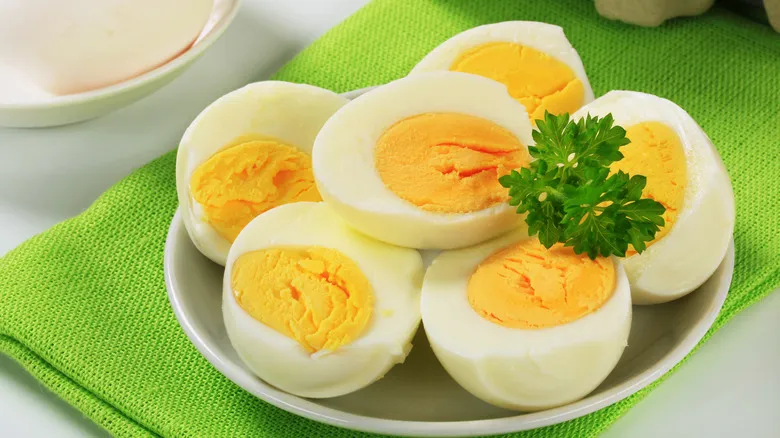Old eggs peel better
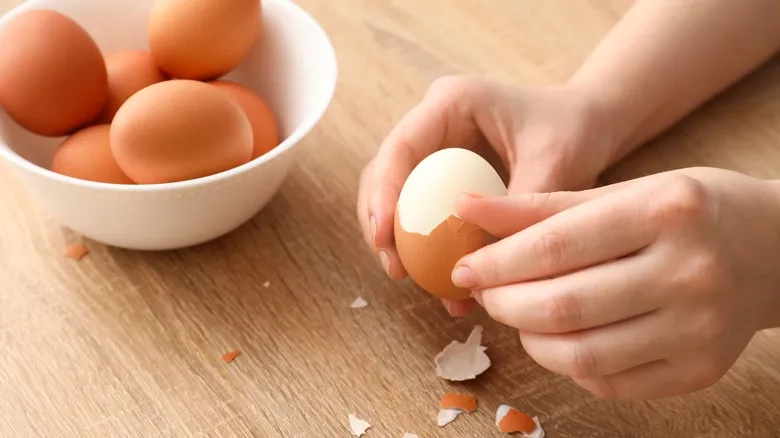
Whether you're preparing hard-boiled eggs or deviled eggs, using eggs that are a few days old can significantly simplify the peeling process. Plus, they tend to look better. Here's the reason: As eggs age, they lose moisture through their porous shells, which can cause the egg to shrink slightly and create a larger air pocket between the egg white and the shell. This air pocket makes peeling the egg easier after boiling.
Moreover, as eggs age, their pH levels rise, resulting in less acidity in the whites. This increased pH weakens the bond between the egg membrane and the albumen, making it simpler to separate the cooked white from the shell. In contrast, fresh eggs have a lower pH, which can cause the egg white to adhere more firmly to the inner shell membrane, making peeling more difficult and often resulting in tearing.
If you only have very fresh eggs on hand, you can still successfully make hard-boiled eggs, but they may be trickier to peel. Adding a splash of vinegar to the boiling water or placing the eggs in an ice water bath immediately after boiling can help make peeling easier, regardless of their freshness.
Don't use expired eggs
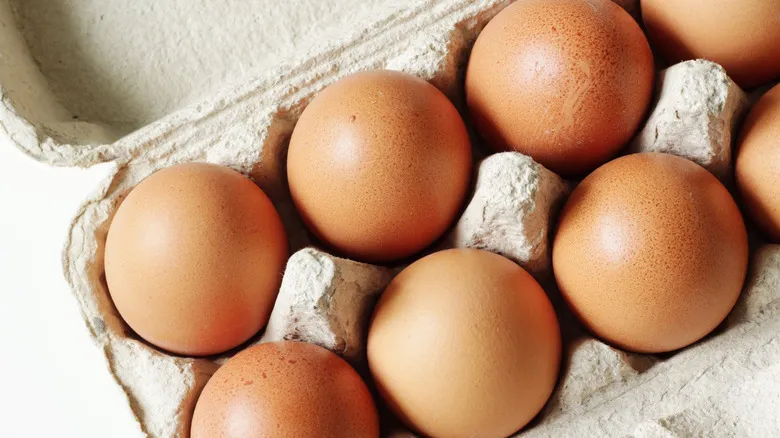
We suggest using eggs that are a few days old, but it's crucial to avoid using expired eggs. To determine freshness, you can conduct the egg float test. Simply fill a bowl with water and gently place the egg in it. Fresh eggs will sink and rest flat on the bottom. As eggs age, air seeps in through the shell, causing them to float gradually. If an egg stands upright on the bottom but doesn't lie completely flat, it is still relatively fresh, though not as fresh as those that do lie flat. If the egg floats to the surface, it's best to discard it, as it is likely past its expiration date.
Eggs that are a few days old are perfectly safe to use. You can refer to the best-by date on your egg carton for guidance. Older eggs tend to peel easily, and with a few simple tips, you can achieve perfectly creamy yolks as well.
Recommended

The Mistake Everyone Makes With Salmon Skin
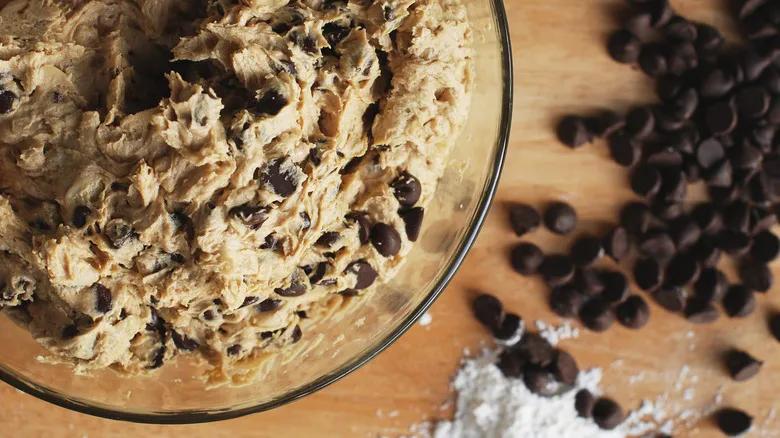
Why Egg-Free Cookie Dough Is Still Unsafe To Eat Raw
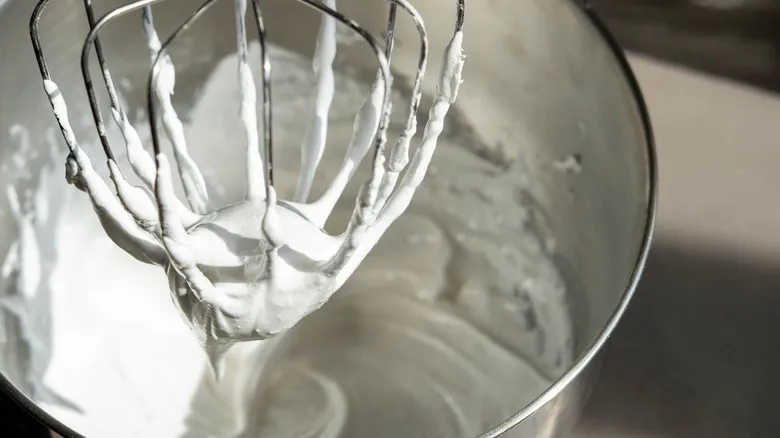
The Simple Fix For Overwhipped Cream
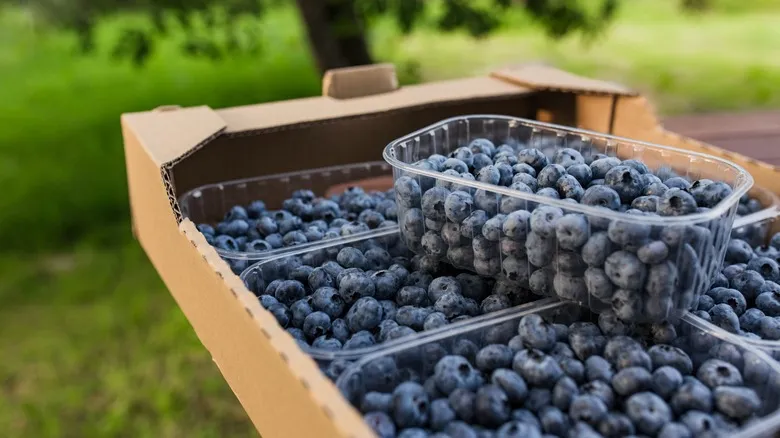
The Rinsing Hack To Sort Out The Sweetest Blueberries In The Pack
Next up

